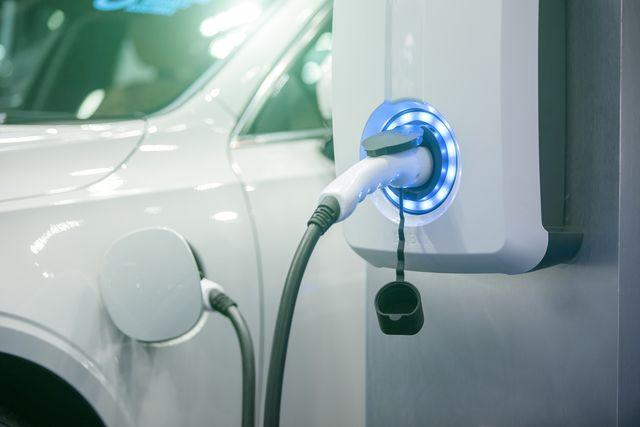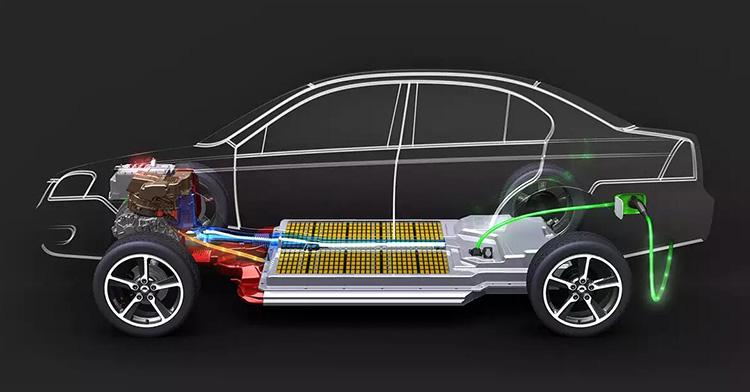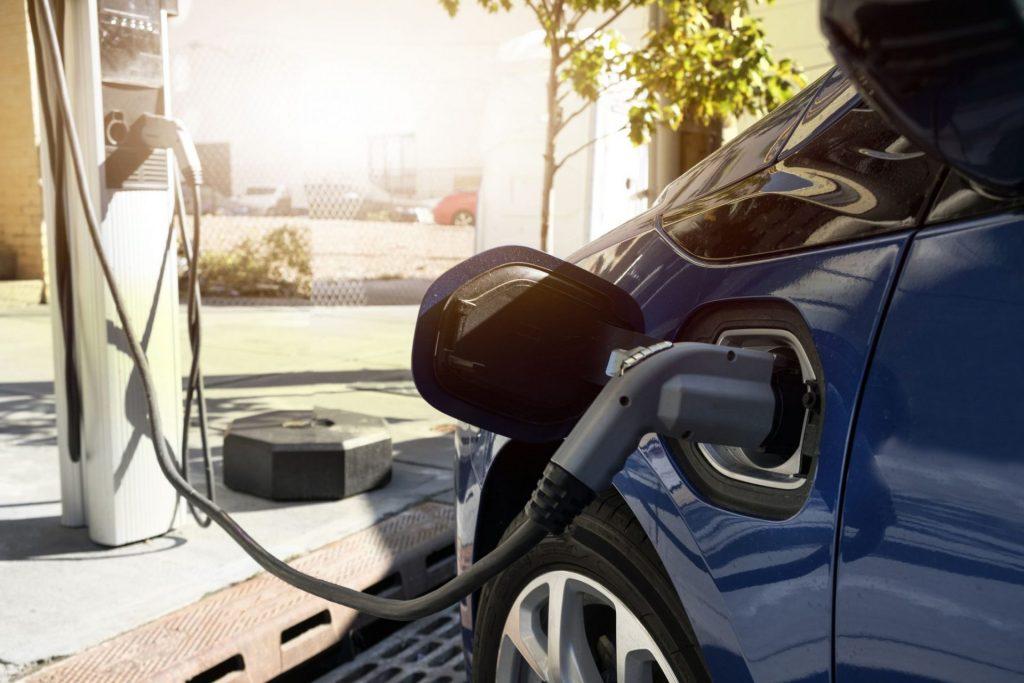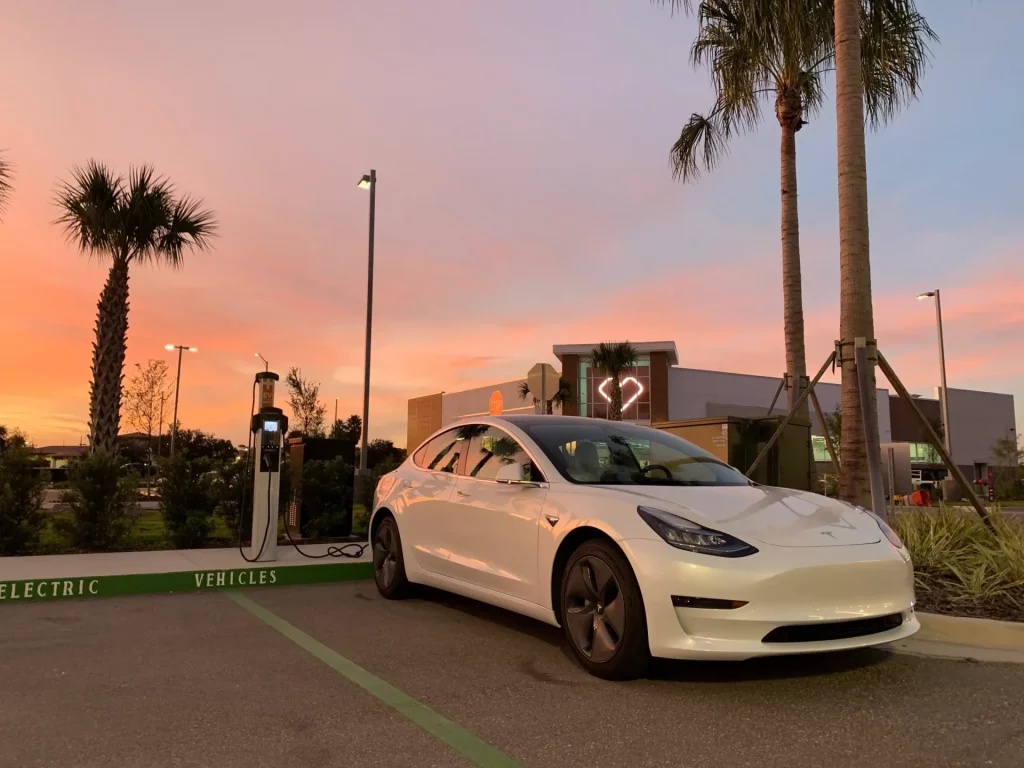What Voltage Do Electric Vehicles Run On?
By Chris Thatcher
Updated Feb 18, 2024

Have you ever found yourself questioning what is the best voltage to run your electric vehicle? Well, the right answer depends on the type of electric vehicle which you’re driving…
Table of Contents
On average, 400 volts is approximately the right amount of volts that is required by an Electric Vehicle on the block. However, there are few EV variants which go as much as up to 800 volts.
Why does voltage matter in an electric vehicle?
Electricity is what runs an electric vehicle. The engine in an electric car is powered by an electric motor which in turn gets its power from electricity. The electricity that powers the motor comes from batteries. Batteries are made up of cells, and each cell has volts. The voltage of the battery is determined by the number of cells in the battery.
This is because this is the voltage at which batteries are typically manufactured. However, there are a few electric cars on the market that also have a volt of 800 volts which offers better charge time & efficiency. These cars are usually more expensive than electric cars with a lower volt because they can charge faster & pack more power.
If you’re looking to convert your electric car to a different voltage, there are a few things that you need to understand
Why Voltage Matter In Electric Vehicles?
The volts of the battery are important because it determines how much power the motor will have. The higher the voltage, the more powerful the motor will be.
If you have a low-voltage electric car, you may find that it doesn’t have enough power to climb hills or accelerate quickly. If you have a high-voltage electric car, you may find that it uses more electricity than a low-voltage electric car and therefore has a shorter range.
The volts of an electric car also determines how fast it can charge. A high-voltage electric car can charge faster than a low-volt electric car.
What Are The Different Types Of Voltages?

There are practically two types of voltages; the AC voltage & the DC voltage.
AC Voltage: The AC Volt or the alternating current volt is one such where the polarity of the charges is opposite. They alternate current within the battery between the positive and the negative terminals.
DC Voltage: The DC Volt or the direct current volt is one where the polarity is the same. The direct current flows through the same polarities (positive or negative).
In Electric vehicles, since there’s an AC induction motor commonly installed that powers the entire engine, therefore, the batteries which are installed in EVs are more likely AC voltage supporting.
What Is The Right Voltage For Your Electric Vehicle?
The right volt for an electric vehicle is usually 400 volts. This is the standard volt at which most electric vehicles run on. Most electric vehicle manufacturers use this as a standard volt or 360 volts when the charge of the vehicle is low. Some of the most reliable brands in the market such as Nissan Leaf and all Tesla models work at 400 volts.
This volt is precisely a good balance when it comes to the cost & functionality of the vehicle. However, there are certain electric vehicle variants which are powered at a much higher volt such as 800 volts or even 1200 volts. It depends on the versatility of features, the performance and the speed of the vehicle, bringing into attention other factors as well.
Can I Convert My Electric Car To Work On A Different Voltage?

There's no simple answer to this question because many electric vehicles in the market are non-customizable. However, manufacturers are now becoming flexible in allowing EV owners to modify their respective vehicles by allowing certain upgrades & modifications. You can now change car parts such as suspension & aesthetic body parts. And certain manufacturers are also allowing users to perform a battery upgrade which eventually results in modifying the overall volt consumption of any electric vehicle.
So the type of car which you're purchasing really tells whether you can convert your vehicle to a different volt for functioning or not.
Is Higher Voltage Better For Electric Vehicles?
The benefit of using a higher voltage battery system in your electric vehicle is that it lowers your current consumption during the battery charging process. As a result, your car does not experience any overheating issues and has better power retention within the system. The more power it saves up, the longer your car will be able to travel on a single charge.
The only drawback of using a high voltage system is that it makes your car heavier and bulkier. The increase in weight can be a problem when you want to take your car on long trips or journeys.
Can I Increase The Power Of My Electric Vehicle?

You certainly can. By increasing the volts of your electric car, you are essentially increasing its power. This can be done by upgrading your battery pack or installing a higher voltage battery pack. However, this will also result in your car becoming heavier and bulkier.
The best way to increase the power of your electric car is by installing a motor with more power. This will give your car more torque and speed, without making it heavier.
To learn more about electric car motors,
Read: AC Motor or DC Motor: Which Electric Vehicle Motor Is the Best?
What Voltage Does Tesla Commonly Use In Their Vehicles?
Tesla is one of the most popular and reliable electric car manufacturers in the market. They usually install 400-volt batteries in their vehicles. However, they are now coming up with a new line of cars which will use 800-volt batteries. This is being done in order to increase the range and power of their vehicles.
The Tesla Model S P100D is one of the first cars to use an 800-volt battery pack. This allows the car to travel up to 315 miles on a single charge.
The Tesla Model X P100D is another car which uses an 800-volt battery pack. This allows the car to travel up to 289 miles on a single charge.
The Tesla Model 3 is the newest car from Tesla. It uses a 400-volt battery pack and has a range of up to 310 miles.
There you go, that’s all we have to share about how volts affects your electric vehicle. Feel free to share any information that you find useful.
